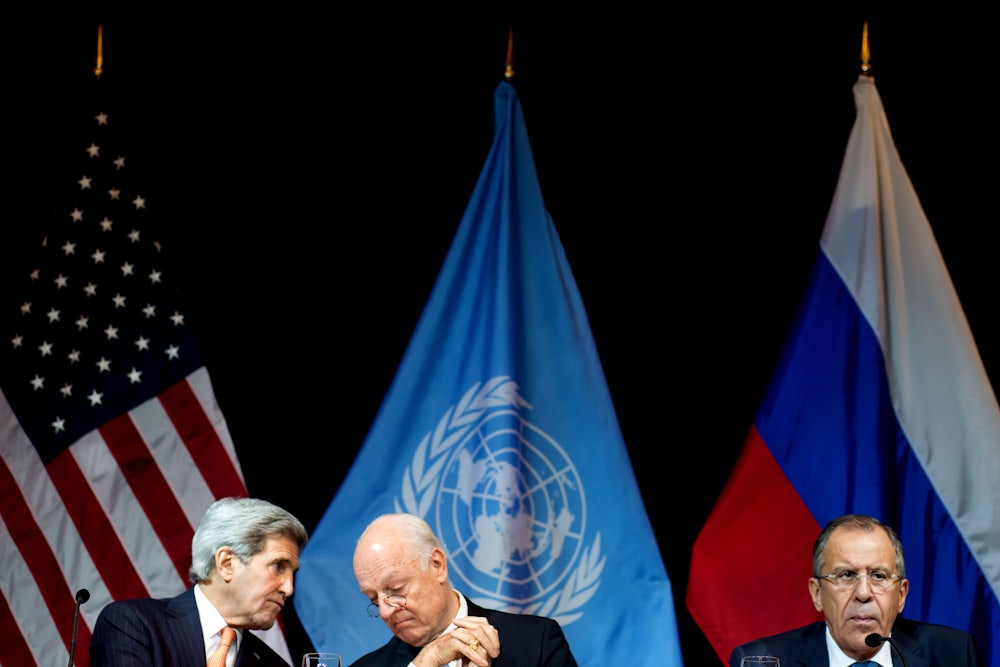France is responding to the terror attacks on Paris with a burst of retaliatory air strikes, pounding ISIS strongholds in Syria where already beleaguered civilians will now have to contend with full wrath of a Western military. The U.S. is striking trucks that ISIS has commandeered to transport oil, in an operation dubbed Tidal Wave II, an action it had previously refrained from executing over concerns about civilian casualties. The White House says it has not shifted its military strategy toward ISIS, but the use of indiscriminate bombing suggests that the West may be veering toward outright war.
Meanwhile, the attacks on Paris, combined with the downing of a plane over the Sinai Peninsula carrying more than 200 Russian civilians, has revived long-stalled talks to negotiate a political settlement to the Syrian conflict. But we are already seeing the problem with trying to sort out a three-sided civil war: Russia and the U.S. are both publicly committed to fighting ISIS, but they can’t decide what to do about Russia’s ally Bashar al-Assad. Russian Foreign Minister Sergey Lavrov may have something of a point when he says: “The Paris attacks have shown ... that it doesn’t matter if you are for Assad or against him; ISIS is your enemy, so it’s not about Assad.”
And that doesn’t even begin to address the entrenched differences between regional rivals in the Middle East. It still remains to be seen whether the Paris attacks constitute a turning point in that tangled state of affairs, whether it will produce the sword to undo the Gordian knot.
